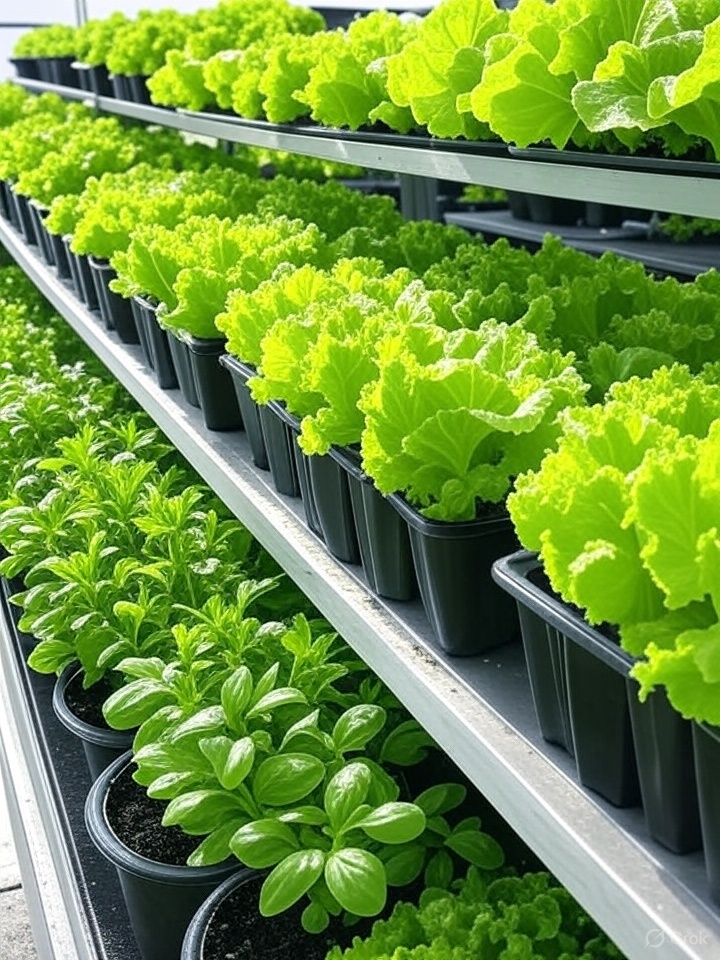Using Food-Grade PP #5 Plastics in Greenhouses for Healthier Starter Plants

In the world of greenhouse gardening, producing healthy, high-quality starter plants is key to success. One often-overlooked factor in achieving this is the choice of containers. Food-grade polypropylene (PP #5) plastics, like those offered by 4K Thermoforming, are becoming a go-to option for growers aiming to minimize microplastic contamination and ensure plant safety. While not explicitly required by Michigan regulations, these plastics offer significant benefits for producing robust starter plants. Here's why they matter and how they can elevate your greenhouse operation.
Why Choose Food-Grade PP #5 Plastics?
- Reducing Microplastic Risks
Food-grade PP #5 plastics are chemically stable and resist breaking down under typical greenhouse conditions like moisture, UV light, and nutrient exposure. Unlike lower-quality plastics that may contain harmful additives, PP #5 is free of BPA and phthalates, reducing the chance of microplastics or chemicals leaching into the growing medium. This is crucial for starter plants, as microplastics can be absorbed through roots, potentially affecting plant health and consumer safety. - Durability for Long-Term Use
PP #5 containers are tough, resisting cracks and wear even with frequent handling and cleaning. This durability prevents physical degradation that could release microplastics, making them ideal for reusable pots and trays. Their longevity also saves costs, allowing greenhouses to sanitize and reuse containers across multiple growing cycles. - Supporting Plant Safety Standards
While Michigan doesn't mandate food-grade plastics for starter plant containers, regulations emphasize healthy, contaminant-free plants. PP #5 aligns with these standards by minimizing the risk of introducing harmful substances, ensuring your plants meet nursery stock and food safety requirements. This is especially important for edible crops, where consumer health is a priority. - Boosting Market Appeal
Consumers and retailers increasingly value safety and sustainability. Using food-grade PP #5 demonstrates a commitment to producing clean, high-quality starter plants, giving your greenhouse a competitive edge. Highlighting these safe materials in your marketing can attract eco-conscious buyers and build trust in your brand.
Practical Tips for Greenhouse Growers
- Choose PP #5 Containers: Opt for food-grade PP #5 pots, trays, and cell packs from trusted manufacturers like 4K Thermoforming to ensure safety and durability.
- Control Contamination: Use filtered water and high-quality growing media to limit external microplastic sources. Regularly test inputs to keep your growing environment clean.
- Maintain Equipment: Clean PP #5 containers with gentle, non-abrasive methods and replace any showing signs of wear to prevent degradation.
- Promote Safety: Market your use of food-grade plastics to appeal to customers who prioritize health and environmental concerns.
Limitations to Consider
While PP #5 is a smart choice, it's not a complete shield against microplastics. Contamination can still occur from water, media, or other equipment, so a holistic approach to greenhouse management is essential. Additionally, prolonged exposure to harsh conditions like intense UV light may slowly degrade even PP #5, so regular container inspections are a must. Finally, while PP #5 may cost more upfront, its reusability and safety benefits make it a worthwhile investment.
Final Thoughts
Food-grade PP #5 plastics, like those from 4K Thermoforming, are a practical and forward-thinking choice for greenhouse growers producing starter plants. They help reduce microplastic risks, support compliance with safety standards, and enhance your plants' marketability. By incorporating these materials and maintaining a clean growing environment, you can produce healthier, more appealing starter plants that stand out in today's competitive market. For more guidance on Michigan's nursery regulations, visit Michigan.gov.
Grow smarter, grow safer, and let your plants thrive!